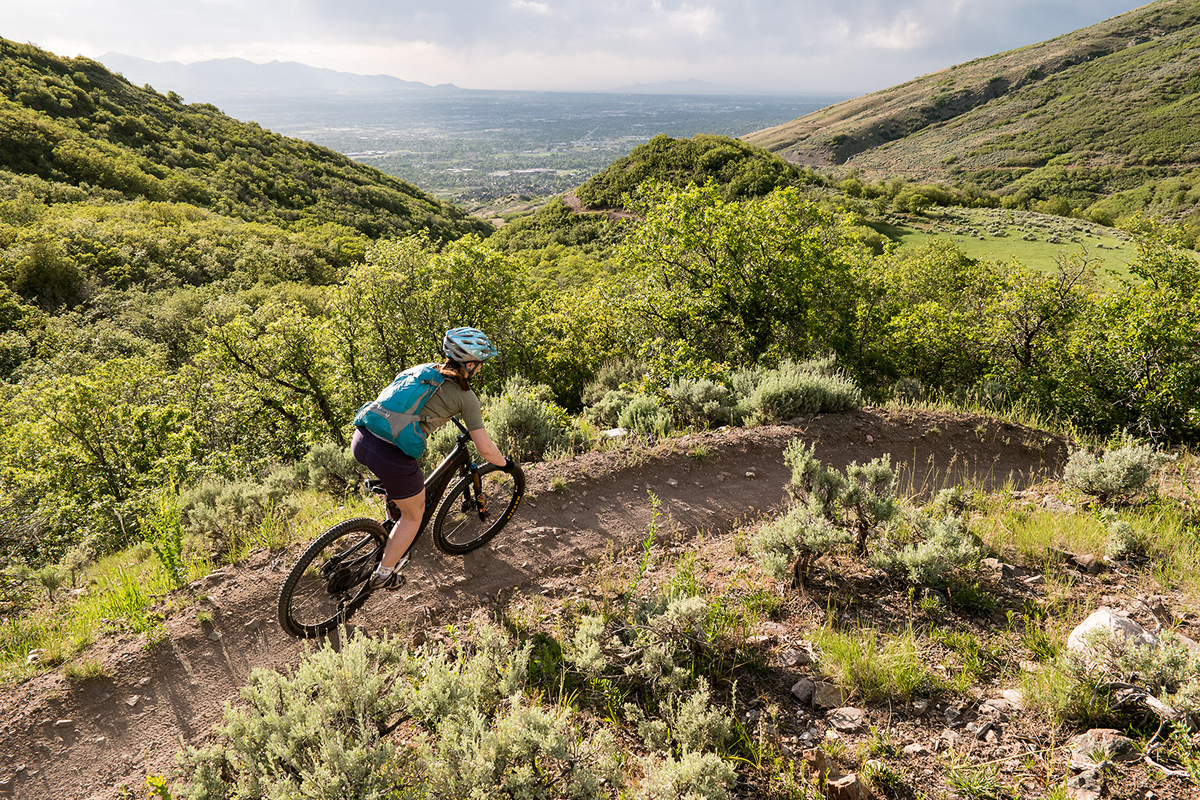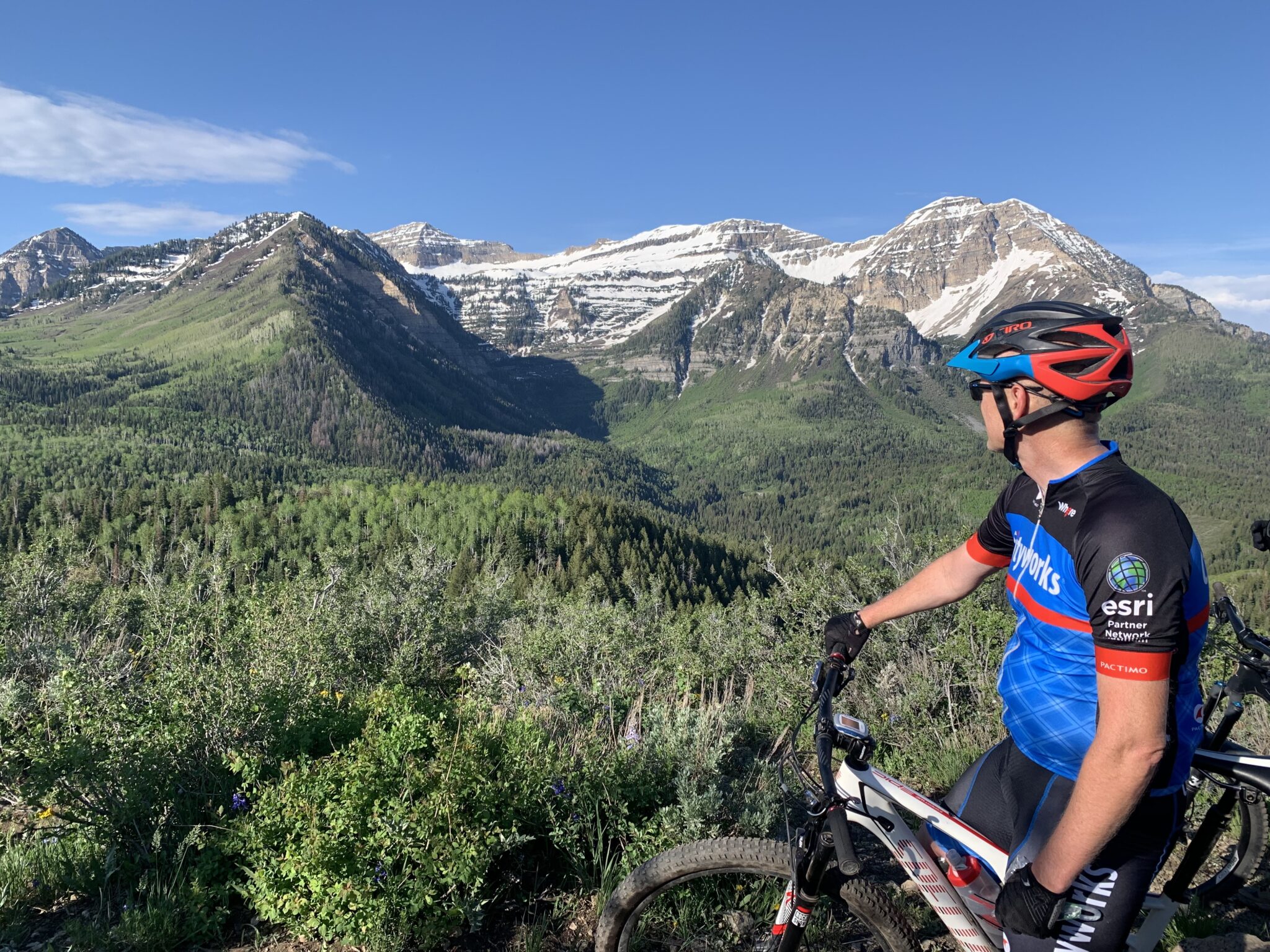By Katie McKellar, Utah News Dispatch — A Republican Utah lawmaker who is also an avid road cyclist and mountain biker has proposed legislation to give one of Utah’s most popular multi-use trails eminent domain rights.

The newly filed bill sponsored by Rep. Jeff Stenquist, R-Draper, seeks to classify Bonneville Shoreline Trail — a trail for hikers and bikers that currently runs along the Salt Lake Valley’s foothill bench that was formed by Utah’s ancient Ice Age lake, Lake Bonneville — as a public use that would be eligible for eminent domain.

In other words, HB235 would empower local governments to allow them to use eminent domain to condemn or claim private property for the purpose of connecting or expanding segments of the Bonneville Shoreline Trail.
Currently the Bonneville Shoreline Trail is made up of dozens of segments that span just over 100 miles from Logan to Spanish Fork, with proposed plans to expand the route to about 280 miles all the way to the Idaho border to the north and Nephi to the south. The Bonneville Shoreline Trail Committee wants to eventually connect all of its segments to create a continuous route, which would require coordination across multiple cities and counties, as well as in some areas national Forest Service land.
Stenquist said his bill is “narrowly tailored” to the Bonneville Shoreline Trail as an “important” multi-use route for outdoor recreation in Utah. He noted the trail has been expanding for decades now, but not without hard work across many different jurisdictions. In some cases, he noted it’s even taken an act of Congress to stretch it across wilderness or Forest Service land.
Asked if there are specific properties cities or counties are interested in for the Bonneville Shoreline Trail, Stenquist said, “It’s not that I’m trying to target a specific segment, per say, I just know there’s more than one,” and his bill would give jurisdictions another tool in their belt to help them complete the Bonneville Shoreline Trail’s proposed route.
Stenquist acknowledged that eminent domain is “always a sticky subject” when it comes to government entities claiming property from private property owners, but he said “they do get fairly compensated. It’s not that it’s just taken away.” He noted the property must be fairly compensated and it’s often “up for negotiation.”
“Sometimes you’ve got a trail, and there’s just one small section that has a private property owner that’s unwilling to compromise on it or work with the local entity,” he said.
In 2008, the Utah Legislature took away local governments’ power to use eminent domain for trail systems. Stenquist’s bill wouldn’t roll back those restrictions entirely — only to expand the authority to Bonneville Shoreline Trail.

Stenquist is also chairman of the Utah Outdoor Recreation Commission, which develops statewide strategies and plans for the state’s outdoor recreation opportunities. He said he hears “a lot” of complaints from cities and counties wanting those eminent domain powers back for trails, “but I just don’t think the Legislature has a lot of appetite for restoring eminent domain authority for trails.
“But one that keeps coming up is Bonneville Shoreline Trail,” he said, so he agreed to try to run a bill.
Utah’s Republican supermajority Legislature is full of conservatives who value private property rights, and Stenquist said he’s one of them. But he said eminent domain can sometimes be necessary to complete projects of regional importance, and he argued Bonneville Shoreline Trail should be one of them.
“I’m someone who very much supports private property rights. But sometimes you want to be able to have that tool in your toolbox to enable you to negotiate with private property owners for a fair price.”
It’s unclear how much support the bill will have in the House and Senate.
“It’s really specific,” he said. “It doesn’t open up the floodgates for (all trails). If that’s something the Legislature will have an appetite for, I don’t know if they will.”
Stenquist hopes it will at least be heard in a public hearing during the Utah Legislature’s 45-day session that begins Tuesday, but that remains to be seen.
Utah News Dispatch is part of States Newsroom, a nonprofit news network supported by grants and a coalition of donors as a 501c(3) public charity. Utah News Dispatch maintains editorial independence. Contact Editor McKenzie Romero for questions: info@utahnewsdispatch.com. Follow Utah News Dispatch on Facebook and Twitter.








